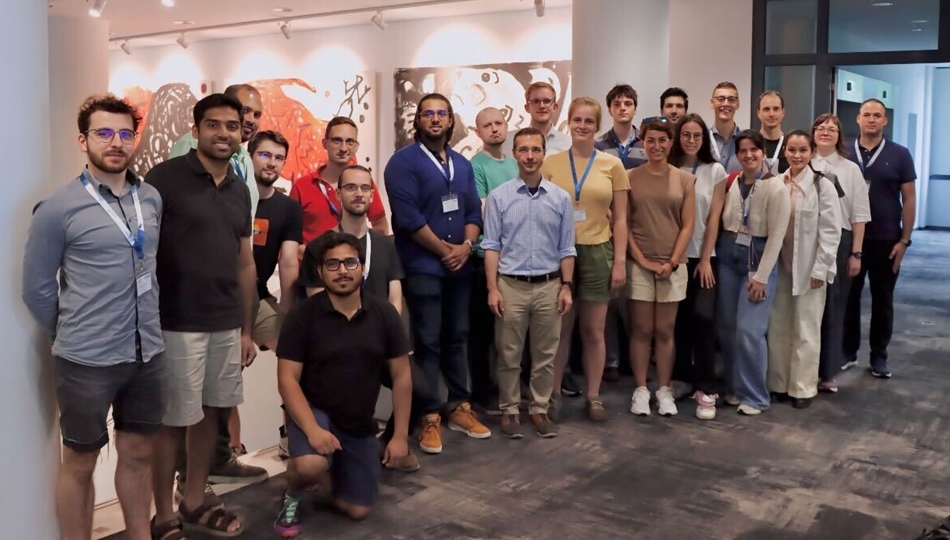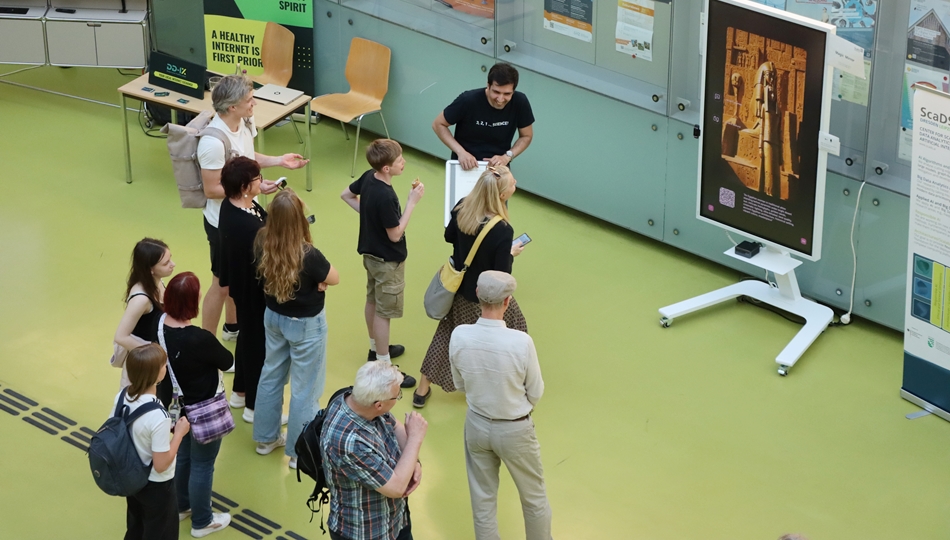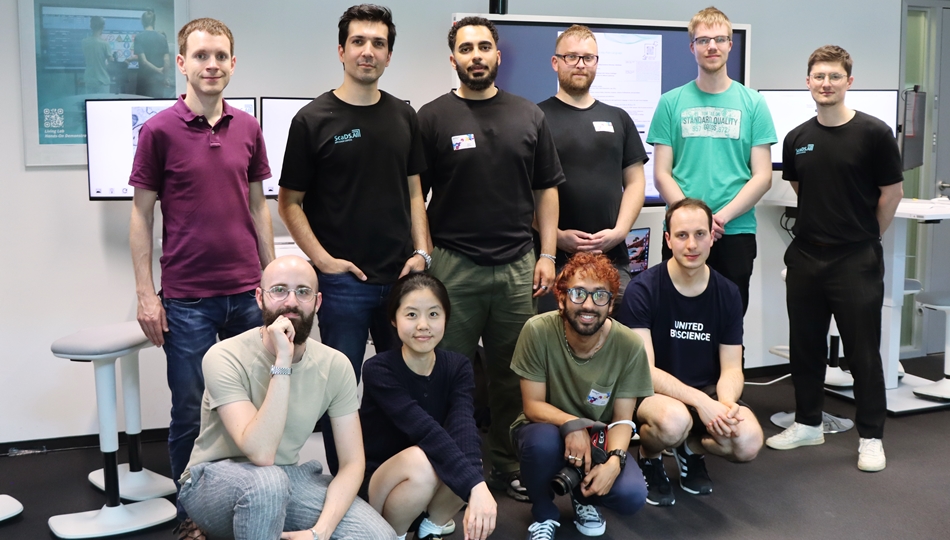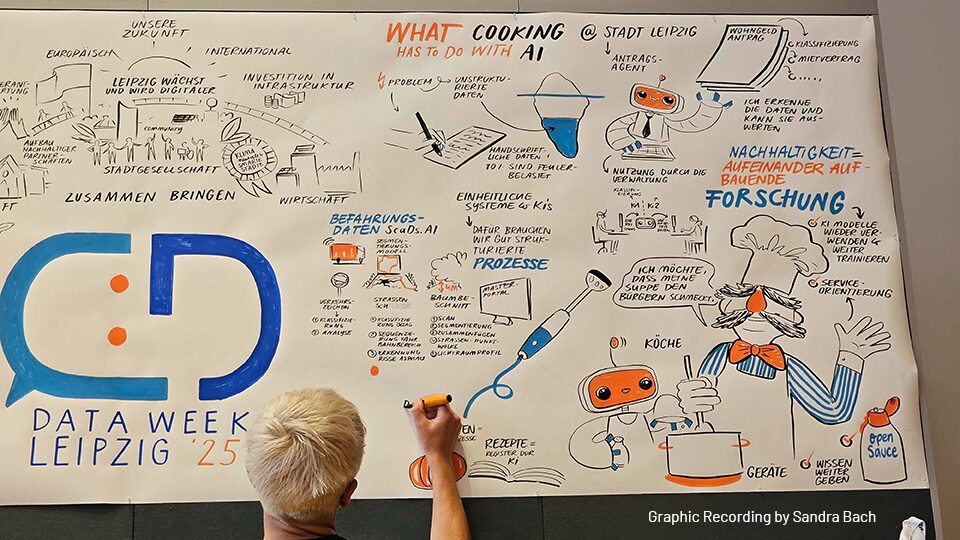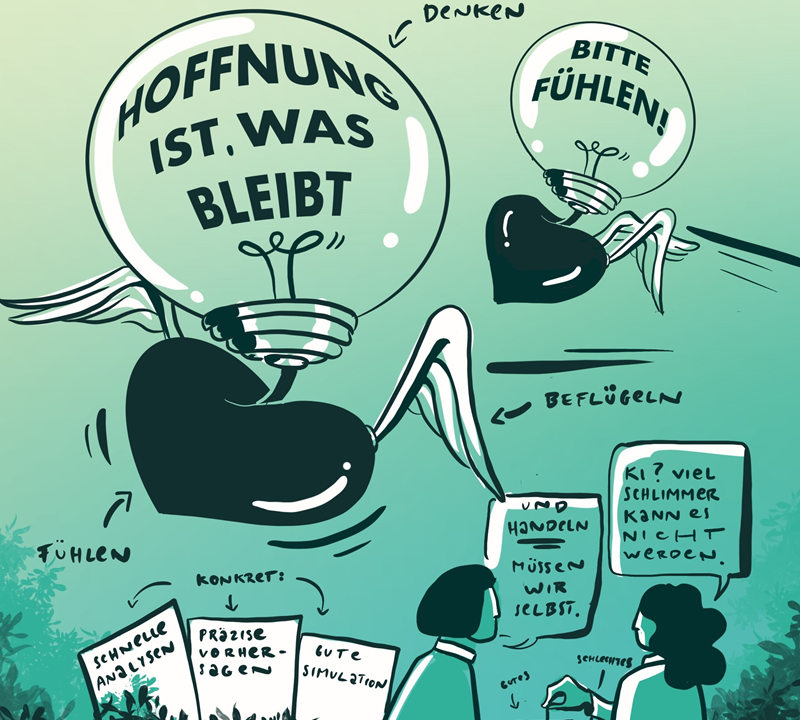
10. November 2023
Hope in the Climate Crisis: Artificial Intelligence in the Context of Ecological Sustainability and Social Responsibility

On 10.11.2023, CitizenScience.AI invited the public to a Symposium. The topic was Hope in the Climate Crisis: Artificial Intelligence in the Context of Ecological Sustainability and Social Responsibility. CitizenScience.AI is a cooperation between ScaDS.AI Dresden/Leipzig and the Office of the Gender Equality Commissioner and Women’s Representative, TUD Dresden University of Technology.
Symposium: Hope in the climate crisis – Artificial Intelligence in the Context of Ecological Sustainability and Social Responsibility
Embedding of content
Dr. Jutta Luise Eckhardt
Gender Equality Commissioner and Women’s Representative at TUD Dresden University of Technology
Dr. Jutta Luise Eckhardt presented the following topics at the symposium:
- one of the greatest challenges of our time: the climate crisis
- the possibilities to counteract one of the most advanced technologies of our time: AI
- AI as a key technology that divides society
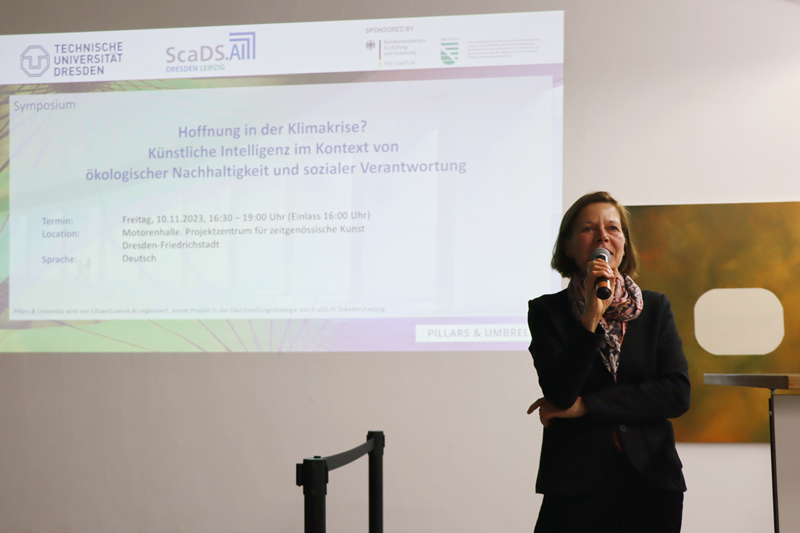
Dr. Andrea Blumtritt
Anti-discrimination officer in Saxony
Dr. Andrea Blumtritt is initiating and supporting dialogue between politics, science and society. Her special concern: with a view to the digitization strategy in Saxony, participating in open discourse on the potential for discrimination in AI.
Prof. Dr. Carmen Leicht-Scholten
Intellectual patron, Chair of Gender and Diversity in Engineering in the Faculty of Civil Engineering at RWTH Aachen University, 2nd seat at the Faculty of Philosophy, Award for Sustainable Teaching in 2022
In her video message, Prof. Dr. Carmen Leicht-Scholten described the integration of various social actors in participatory processes as a key factor in driving transformations towards sustainable solutions. The presented concept of social responsibility and innovation includes the integration of gender and diversity aspects, transparency and citizen participation into research and innovation processes.
Inspiring contributions
Dr. Sandra Buchmüller
Visiting Professor for Feminist Technology Research in the Faculty of Mechanical Engineering at TUD Dresden University of Technology
Dr. Sandra Buchmüller highlighted the importance of gender and diversity aspects in the development of socially just technology. She emphasized the three dimensions of sustainability – ecology, economy and society – and their integration into the development of technology. The importance of the UN Sustainable Development Goals and the global and local impact of technologies such as electro-waste and fast fashion were emphasized. The contribution of feminist technology research, which emphasizes the social construction of technology and the relevance of gender and diversity in design and use, was discussed. Approaches such as Human-Machine Reconfigurations and Feminist HCI Methodology were presented.

Prof. Dr. Stefan Gumhold
Chair of Computer Graphics and Visualization at the Faculty of Computer Science and Chairman of the Environment Commission at TUD Dresden University of Technology
Prof. Dr. Stefan Gumhold gave a very comprehensible introduction to the topic of AI with numerous examples. He analyzed in depth how AI works and where the problems lie in the area of tension between expectations and understanding. He highlighted the potential of AI technology to combat the climate crisis and weighed it up against energy consumption and the use of AI technology, which is more likely to lead to environmental problems. Hence the importance of individual responsibility. Maxim: action lies with the human being as the executor, who must carry out and scrutinize.

Moritz
TU Umweltinitiative (environmental initiative) of students
Moritz took an offensively critical stance and used the image of Pandorra’s box to position Artificial Intelligence. Economic differences between the global or local geographical North and South are exacerbated by AI, for example by increasing the extraction of fossil fuels, relying on data sets that were created under poor working conditions and cementing positions of power. However, he also emphasized the importance of positive images of the future that give us hope and motivate us to work towards a better future. According to Tuuwi, the key question in the design of AI applications should be how we want to live.
Discussion
The ensuing discussion between the various participants reflected the spectrum that had been opened up:
- Who makes the rules?
- Who defines the standards?
- How can a balanced opinion be organized at all in view of the rapid pace of technological development?
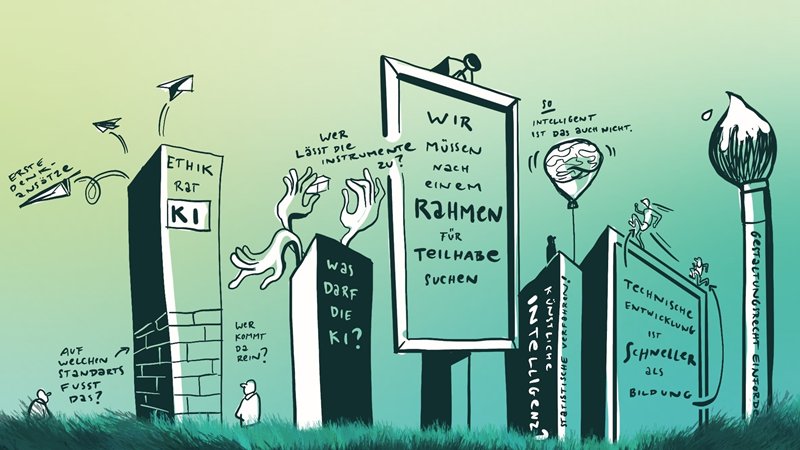
Framework program
Dr. Göde Both: The German Centre for Higher Education Research and Science Studies Berlin presented the project Gendering MINT Digital, which is an open educational portal providing insights into gender-sensitive natural and technical sciences.
Henrike Terheyden: Henrike Terheyden, aka Kendike, documented the event with her uniquely light-footed and substantively brilliant graphics. This visualization will facilitate for many the access to a politically, socially and scientifically virulent and in parts highly polarized debate.
Location
The venue was the Motorenhalle, the project center for contemporary art in Dresden’s Friedrichstadt district. The current exhibition Something with Hope addresses hope as a principle, an utopia of positive development, a “dreaming forwards” (Ernst Bloch). This provided a positively disruptive visual resonance base during the symposium. Afterwards, the participants were able to round off the evening in a relaxed atmosphere with culinary support from the neighbouring Bauwagen-Café.
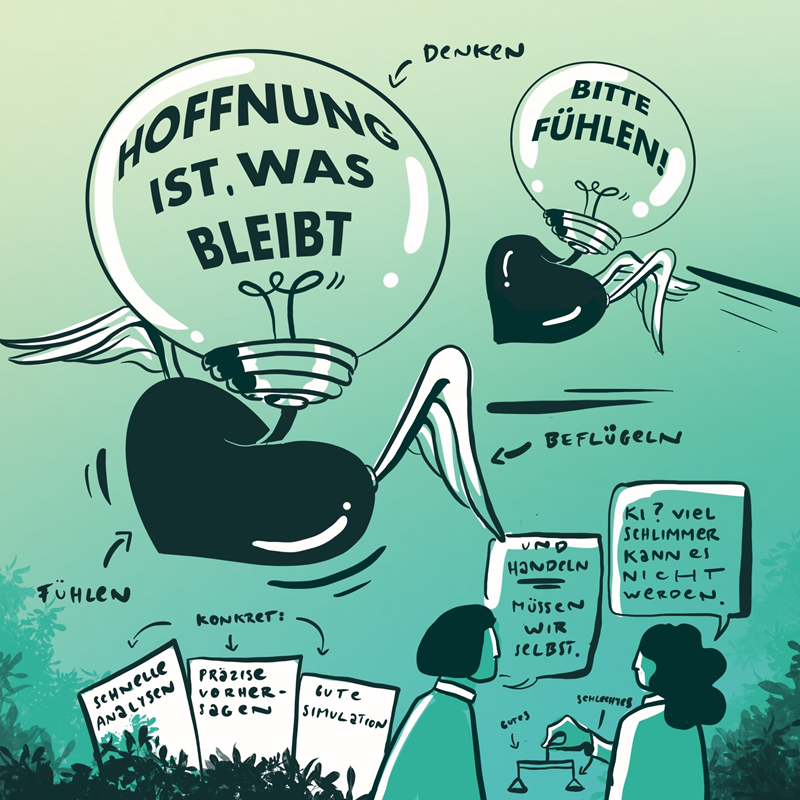
Pillars and Umbrellas
Pillars endure. Until the next paradigm comes up. Umbrellas give protection. But the storm bends them and they are easily forgotten. Both symbolize democracy as a condition of success for gender equality and appreciation of different realities of life. The Pillars and Umbrellas event series reflects on the core themes of:
- gender equality
- participatory justice
- sustainability, and
- cultural diversity
in a variety of formats. (Office of Gender Equality Commissioner and Women’s Representative, TU Dresden)

